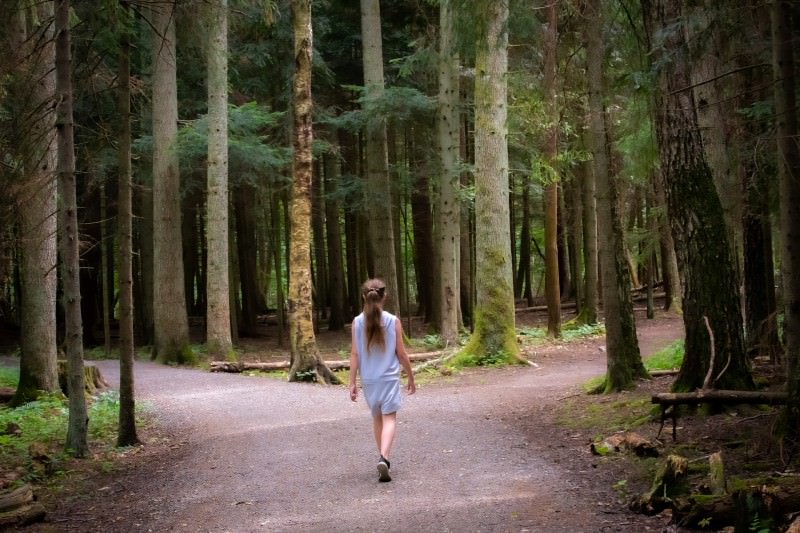One of the things that has struck me during this pandemic is how clearly it has highlighted the precarity of the lives we lead. Obviously, this includes our actual lives — especially in places where the rates of infection and the death toll are still rising exponentially. But it also includes so many other things we often take for granted — our jobs, our homes, our way of life.

But just as the frighteningly precarious nature of our lives has been thoroughly exposed, so too has the inequality of it all. Even in a pandemic, we aren’t all suffering equally. Across the globe, the lowest paid communities are dying the fastest, in addition to falling further into poverty. And lockdown is markedly different for those of us living in comfortable homes, as compared to those confined to tiny apartments or informal settlements. Even in a pandemic, structures of privilege continue to operate.
As I contemplate these realities, a number of things occur to me.
First, in many ways this is a high-speed test run for so many of the issues we are facing due to climate change. People are already dying from the impacts of climate change. And people are already losing their livelihoods, their homes, and their way of life. But this will continue, because we have accepted this human sacrifice in order to protect ‘the economy’ and our own way of life.
Second, it doesn’t have to be this way. We are capable of fundamentally rethinking significant aspects of our property and labour systems overnight. We can impose a moratorium on evictions, double jobseeker, and introduce a whole new scheme for basic income protection. The choice to lift people out of poverty and to prevent homelessness has always been there.
Third, the current push to get back to ‘normal life’ as quickly as possible includes continuing to accept the ecological (and related human) cost of climate change, as well as rapidly discarding the barely nascent social safety nets that have been introduced to reduce the unnecessary suffering caused by unemployment and housing unaffordability.
'There are so many systems that do not serve (the majority of) us well, but which we have accepted as immutable for too long.'
Is this really what we want?
Throughout human history, periods of upheaval have led people to question the fairness of their social order. After the plague — or ‘Black Death’ — reduced the English population by half, from around 5 million in 1348 to 2.5 million in 1377, a shortage of labour and tenants shifted the balance of power away from the landed gentry. In the years that followed, the manorial system slowly collapsed, as serfs took the opportunity to liberate themselves and labourers successfully resisted historically exploitative arrangements by refusing to accept long-term contracts and negotiating higher wages than those that were established under the Statute of Labourers.
Of course, change didn’t happen overnight — and there were some serious setbacks, such as the failed peasants’ rebellion of 1381 — but, over time an economic and social system that had once seemed unassailable was ultimately dismantled.
Another example comes from 1649, in the unsettled period after the English Civil War and the execution of Charles I. On St George’s Hill in Sussex, a man named Gerrard Winstanley sought to establish a new utopian community in which the commons would be claimed ‘for and in behalf of all the poor oppressed people of England and the whole world’ and communal farming would create a society free from exploitation. Winstanley named his community ‘the True Levellers’, but they came to be called ‘the Diggers’ and this was the name that stuck.
To justify their occupation of St George’s Hill, and to promote it as a model for a new society free of the exploitation of wage labour and private property, Winstanley and the Diggers argued that the commons had been stolen from the people and hedged into ‘enclosures’ by the rich leaving the poor to live in miserable poverty.
Ultimately their argument did not win the day. In fact, the Diggers colony survived for less than two years before being evicted, but Winstanley’s vision for a new society did live on through his writing.
Don’t get me wrong. I’m not arguing that we should pick up where Winstanley left off. For one thing, he took a very conservative approach to the position of women (even for his time) by arguing for a strong patriarchal role for husbands and fathers, and only limited education for girls. But I do think that we should draw inspiration from those who have been willing to reimagine society from the ground up. There are so many systems that do not serve (the majority of) us well, but which we have accepted as immutable for too long.
The sheer precariousness and injustice of our current
system has been laid bare by this pandemic, and the cracks that have
been exposed are only going to deepen in the coming climate crisis. In
our haste to get back to ‘normal’, let’s not be too quick to re-embrace
the bad with the good. We can re-imagine a better kind of normal. We
just have to be brave enough to try.
 Dr
Cristy Clark is a human rights specialist. Her work focuses on the
intersection of human rights, neoliberalism, activism and the
environment, and particularly on the human right to water.
Dr
Cristy Clark is a human rights specialist. Her work focuses on the
intersection of human rights, neoliberalism, activism and the
environment, and particularly on the human right to water.
No comments:
Post a Comment